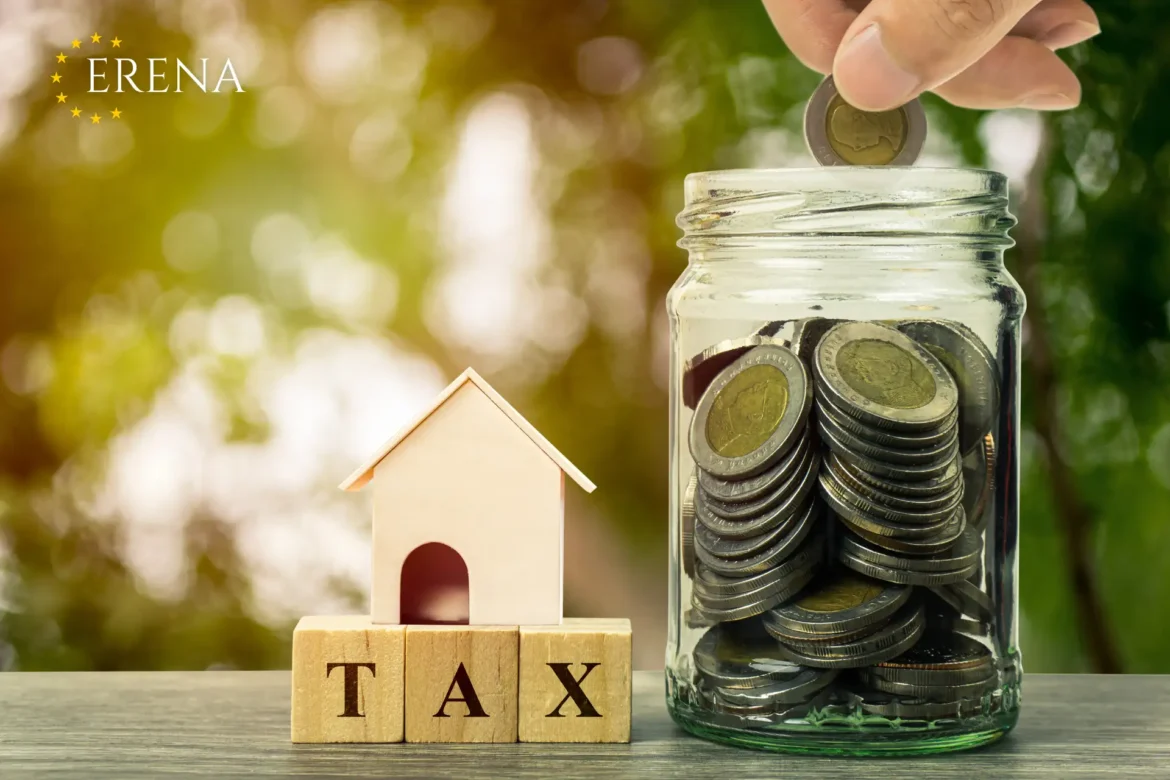Owning real estate in Europe remains one of the most stable and attractive investment options, but it also comes with a variety of tax obligations. In 2025, more investors—both local and international—are actively looking for legal and strategic ways to reduce their real estate tax burden. While the term “IRS” is typically associated with the U.S. tax system, it’s also often used generically to refer to tax strategies in global property investment contexts.
This guide will explore how to maximize tax efficiency in European countries, highlighting the best national regimes, exemptions, and deductions that can save you thousands of euros annually.
Overview: Real Estate Taxation in Europe
Real estate taxes in Europe typically fall into four categories:
- Ownership taxes (property tax or council tax)
- Rental income tax
- Capital gains tax (when selling a property)
- Transfer or inheritance taxes
Tax rates and rules differ by country, depending on:
- Residency status (resident vs non-resident)
- Type of ownership (individual or company)
- Tax regime chosen (simplified, actual expenses, flat rate)
France
Available tax regimes:
- Micro-foncier – for rental income under €15,000/year: automatic 30% deduction
- Régime réel – allows full deduction of actual expenses (repairs, insurance, mortgage interest, etc.)
Example:
Rental income: €18,000/year
Deductible expenses: €6,000
Taxable base under régime réel: €12,000
Non-resident tax on rental income: 20% + 17.2% social charges = 37.2%, but efficient deductions can significantly reduce the base.
Spain
Key features:
- Rental income tax: 19% for EU/EEA residents, 24% for others
- EU residents can deduct expenses (maintenance, amortization, mortgage interest)
- 60% reduction on net income if the rental is long-term and residential
Example:
Rental income: €20,000
Expenses: €8,000
Taxable after expenses: €12,000
After 60% reduction: €4,800
Tax due: €4,800 × 19% = €912
Portugal
Current status (2025):
- NHR (Non-Habitual Resident) regime is phasing out but still valid for early applicants (10-year benefit)
- Rental income tax: 28% (flat rate)
- May be reduced to 15% for rural or long-term affordable housing
- Capital gains tax: 28%, deferrable via reinvestment
Deductions allowed:
- Property tax (IMI)
- Mortgage interest
- Maintenance and repairs
- Management fees
Germany
Highlights:
- Rental income tax: progressive scale from 14% to 45%
- All expenses are deductible, including:
- Mortgage interest
- Repairs and maintenance
- Property management
- Travel related to property management
- Depreciation: 2% per year (residential)
- Capital gains tax can be deferred under §6b EStG when reinvesting in a similar property
Example:
Rental income: €15,000
Expenses: €7,000
Depreciation: €4,000
Taxable income: €4,000
Italy
Simplified regime: Cedolare Secca
- Flat tax rate of 21% on long-term rentals
- 10% for subsidized or social housing leases
- No deductions required, simplified reporting
- Available to both residents and non-residents
Example:
Rental income: €14,000/year
Flat tax at 21% = €2,940
Greece
- Rental income tax bands:
- 15% up to €12,000
- 35% from €12,001–€35,000
- 45% above €35,000
- Deductions: mortgage interest, insurance, maintenance
- Depreciation allowed: 2–4% per year
- Short-term rentals (e.g. Airbnb) taxed under separate rules: 15–30%
Cyprus
- Progressive income tax on rental income
- Capital gains tax exemption possible for primary residences held over 5 years
- Deductions include mortgage interest, repairs, property taxes
Average Property Prices in Europe (2025, €/m²)
| Country | City | Avg. Price €/m² |
|---|---|---|
| France | Paris | 10,000 |
| Spain | Barcelona | 5,500 |
| Portugal | Lisbon | 4,800 |
| Germany | Berlin | 5,100 |
| Italy | Milan | 4,900 |
| Greece | Athens | 2,900 |
| Poland | Warsaw | 2,920 |
Conclusion
How to Maximize Real Estate Tax Savings with 2025 IRS Discounts? In the European context, this means using local regimes and deductions to legally minimize your tax bill while maximizing returns on your real estate.
✅ If you want flexibility and full expense deductions — Germany and France are your best bets.
✅ Prefer a flat-rate system with minimal paperwork? Go for Italy or Portugal.
✅ Looking for generous tax reductions? Spain’s 60% rule for long-term rentals is extremely attractive.
✅ Need capital gains deferral? Germany and Portugal both offer solid legal tools to postpone taxation when reinvesting.
🧾 Tip: Keep detailed records of all property-related expenses, consult local tax advisors, and choose the tax regime that aligns with your goals — your tax bill may shrink dramatically.
Bottom line: Real estate tax strategy is not just for accountants — it’s a critical part of smart investment. Use the rules wisely, and your property portfolio will reward you with both income and efficiency.

